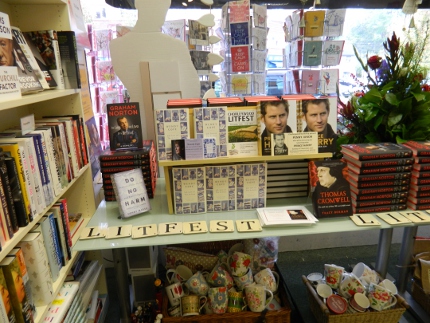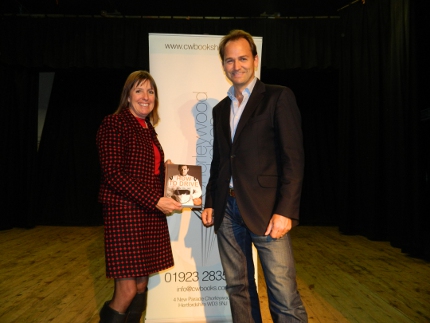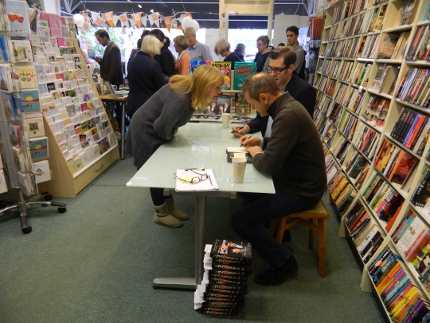Some people have the rather quaint idea that an independent bookshop is a rather dusty place, run by an elderly woman who spends all her time with her feet up, stroking a cat and reading. Others imagine it like the bookshop in Notting Hill, a rather more boutique-style place which sells coffee table books and travel guides.
If there were shops like this they would have closed by now. To be a successful independent bookshop in 2014 you need to be so much more than just a bookshop.
At Chorleywood Bookshop the owner, Sheryl Shurville, opens up at the crack of dawn, invoicing schools with their orders and organising the first of the deliveries. On the way she’ll be picking up a children’s author from the station to take to the school for an event.
Back at the shop a team of three will be unpacking boxes of books. Some will be for a literary lunch, others will be for customers who have ordered them the day before and others will be temporarily displayed in the window ready for the upcoming literary festival.
Along with our customers the staff meet so many authors and it’s like kids being let loose in a sweet shop. We love it. Here’s our owner, Sheryl Shurville with Ben Collins, The Stig.
The shop is busy with customers, many have come to buy greetings cards, others will be buying their tickets for the literary festival and some, of course, are just browsing the new titles.
Behind the scenes, one of the staff is now writing an article about an author event for the local magazine, someone else is pricing a box of children’s toys and gifts and the third member of staff is back and forth serving customers at the till, while working her way through a batch of books to be returned to the publishers and researching an out of print book for a customer who wants a second hand copy.
Sheryl returns and sorts out the banking and float for the author event later that day. Then she begins work on her introductory speech, sandwich in hand. No one stops to eat for more than 10 minutes, there simply isn’t time.
More customers orders placed, more cards sold, more personal book recommendations given-cups of tea are made and left to go cold.
Refreshments for customers are packed, shop signs and books loaded in the back of car, a bouquet for the author collected and on to the evening event… See Alexander Armstrong and Richard Osman signing copies of A Very Pointless Quiz Book.
This may sound like exaggeration but this is exactly what it’s like at an indie bookshop, well, unless it’s Halloween,Christmas, Easter, Mother’s Day….when it gets a whole lot busier.
Chorleywood Literary Festival November 10 – 16th. http://chorleywoodbookshop.co.uk/chorleywood-literary-festival-2014




